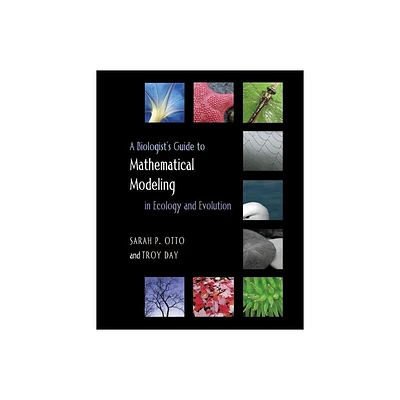Home
The Evolution of Mathematics
Loading Inventory...
Barnes and Noble
The Evolution of Mathematics
Current price: $34.95


Barnes and Noble
The Evolution of Mathematics
Current price: $34.95
Loading Inventory...
Size: OS
*Product Information may vary - to confirm product availability, pricing, and additional information please contact Barnes and Noble
There is a growing awareness among researchers in the humanities and social sciences of the rhetorical force of mathematical discourse—whether in regard to gerrymandering, facial recognition technologies, or racial biases in algorithmic automation. This book proposes a novel way to engage with and understand mathematics via a theoretical framework that highlights how math transforms the social-material world.
In this study, G. Mitchell Reyes applies contemporary rhetorical analysis to mathematical discourse, calling into question the commonly held view that math equals truth. Examining mathematics in historical context, Reyes traces its development from Plato’s teaching about abstract numbers to Euclidian geometry and the emergence of calculus and infinitesimals, imaginary numbers, and algorithms. This history reveals that mathematical innovation has always relied on rhetorical practices of making meaning, such as analogy, metaphor, and invention. Far from expressing truth hidden deep in reality, mathematics is dynamic and evolving, shaping reality and our experience of it.
By bringing mathematics back down to the material-social world, Reyes makes it possible for scholars of the rhetoric and sociology of science, technology, and math to collaborate with mathematicians themselves in order to better understand our material world and public culture.
In this study, G. Mitchell Reyes applies contemporary rhetorical analysis to mathematical discourse, calling into question the commonly held view that math equals truth. Examining mathematics in historical context, Reyes traces its development from Plato’s teaching about abstract numbers to Euclidian geometry and the emergence of calculus and infinitesimals, imaginary numbers, and algorithms. This history reveals that mathematical innovation has always relied on rhetorical practices of making meaning, such as analogy, metaphor, and invention. Far from expressing truth hidden deep in reality, mathematics is dynamic and evolving, shaping reality and our experience of it.
By bringing mathematics back down to the material-social world, Reyes makes it possible for scholars of the rhetoric and sociology of science, technology, and math to collaborate with mathematicians themselves in order to better understand our material world and public culture.


















